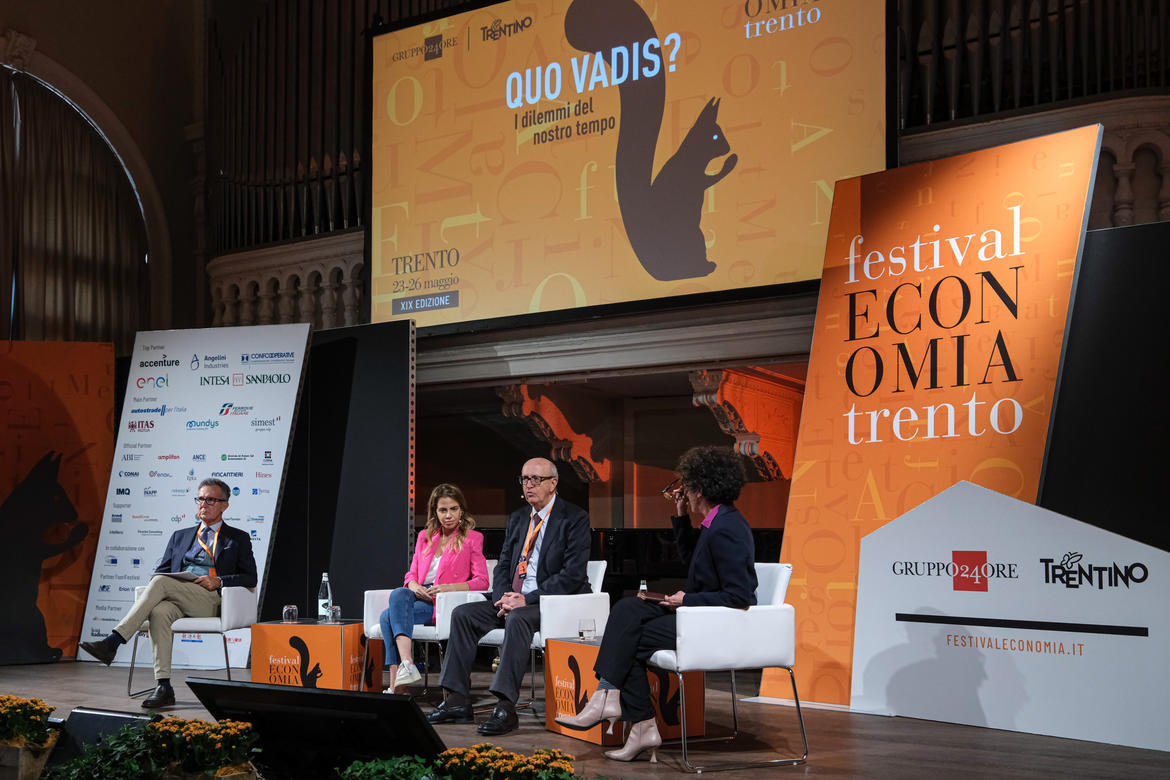
The morning session, “Quo Vadis, China?”, featured distinguished speakers including Alberto Forchielli, Founding Partner of Mindful Capital Partners; Sofia Graziani of Trento University; and Ettore Sequi, President of Sorgenia. Moderated by Paolo Magri, Executive Vice President of the Italian Institute for International Political Studies (ISPI), the panel delved into China's historical evolution, economic strategies, and geopolitical stance. The session offered interesting reflections on China's history, with a strong focus on its economy and international economic strategy. Xi Jinping, the current head of state, embodies the three pillars of the Chinese state: the head of the Communist Party, the head of state, and the head of the military. In 2012, within a few months, he centralized the decision-making process and started a new era for the country. The narrative regarding China in the Western world often sees it as a threat, particularly in relations with the USA. This perception is not influenced by the presidents; both Trump and Biden have maintained the same line, though with very different political styles. Europe has always been caught in the middle, trying not to get involved while struggling to find its own role with China. However, a combination of factors has brought Europe closer to the US: on the one hand, the Biden administration has been able to strengthen its ties with the EU; on the other hand, China’s lack of a strong stance against the war in Ukraine has led Europe to see it as a Russian ally. Geopolitically, the situation is critical. Public debt is extremely high, and economic growth is around 2-3%. China produces more goods than it can consume, leading to increasingly aggressive exports. In this context, Europe hopes to develop industrial capability and share a common stance. Today, Europe is still too divided when it comes to foreign policy.
In the afternoon, the focus shifted to “Quo Vadis, America?”, with insights from Paolo Magri, Roberto d’Alimonte of LUISS Guido Carli University, and Financial Times journalist Silvia Sciorilli Borrelli. Liliana Faccioli Pintozzi, Head of International News at Sky TG24, moderated the session, which centred on the upcoming US presidential election. The two candidates are perceived as weak; the outcome of the elections will ultimately be decided in three to six states: mainly in Michigan, Wisconsin, and Pennsylvania - and to a lesser extent, in Nevada, Arizona, and Georgia. Trump leads in many polls, yet Biden has three advantages: many people’s dislike of Trump; a larger campaign fund (current estimates show that running for president means investing a billion dollars in marketing and communication); and his stance on civil rights, particularly abortion. Biden faces challenges due to his age, current protests by young people in universities over the war in Gaza, and the economy. This is an anomaly: in previous elections, if the current president successfully built sound economic growth, re-election was almost certain; this is no longer the case. While the US economy has never been stronger, persistent inflation presents a significant problem for the Biden administration. Trump remains a strong candidate for citizens tired of the establishment, seeking change and expecting their political class to manage contemporary challenges, ranging from globalization to the technological revolution. Although Trump is not a new candidate, he still successfully embodies a change in the political scene. Like in previous years, this year's election will be decided by a narrow margin – with only a few votes making the difference.
The complete program is available online at www.festivaleconomia.it








